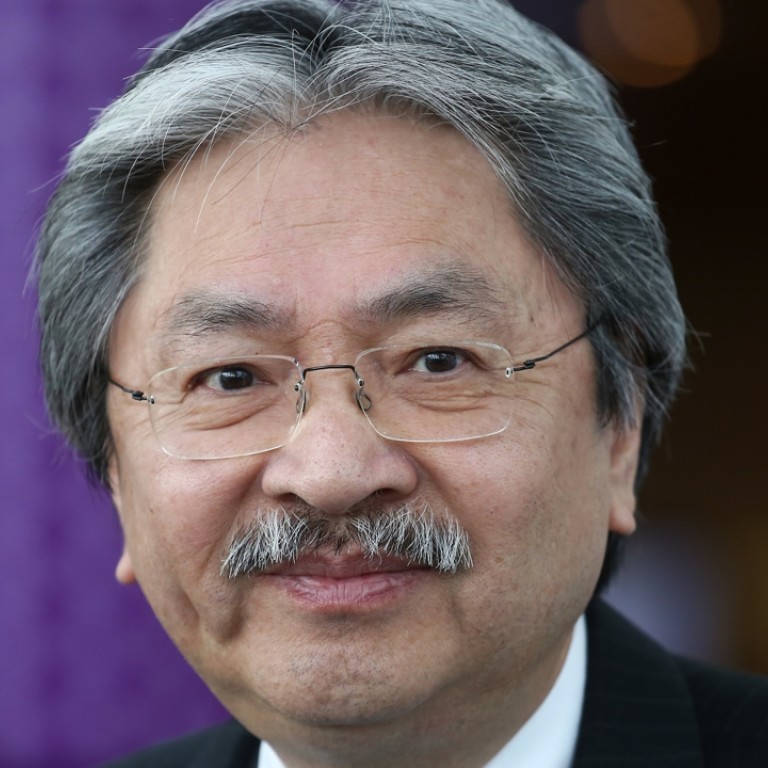
Hong Kong unlikely to see any change to dollar peg despite pressure brought by US rate rises, analysts say
Financial Secretary John Tsang Chun-wah will steer clear of altering the linked exchange rate mechanism as the risks of such a move remain high, analysts believe
Financial Secretary John Tsang Chun-wah is unlikely to change the local currency’s peg to the US dollar despite recent debate about the negative effects of Hong Kong being forced by the system to raise interest rates in line with the United States while the city’s economy remains sluggish.
The Hong Kong dollar has weakened this year since the US increased interest rates in December. It fell 0.55 per cent last month and hit 7.8294 on January 20 – an eight-and-a-half-year low. It was only after some orders to buy – which traders believed to be intervention by the Hong Kong Monetary Authority – that the currency moved back to the strong end of the peg at 7.80.
Under the peg, introduced in 1983, Hong Kong needs to follow US interest rate rises regardless of the strength of the local economy. But a further interest rate rise would hit hard business and mortgage borrowers.
The currency fluctuations have also affected tourism as mainlanders and overseas visitors find the city more expensive.
Mark Konyn, group chief investment officer at AIA, said the peg’s impact on the local economy would come to the fore if the city continued to see a strong dollar and further rate hikes in the US.
“It would threaten Hong Kong’s competitiveness from a cost perspective and hurt local financial liquidity, causing a strain on the domestic economy,” Konyn said.
READ MORE: More budget giveaways and freebies – Hong Kong’s financial secretary ready to splash the cash to spur domestic spending
But Keith Pogson, a senior partner at accounting firm Ernst & Young, said it was highly unlikely the financial secretary would make any move to change the peg.
“The peg has served Hong Kong exceptionally well for many years. There has always been much rumour as to what would happen if it were not a US dollar peg, and whether a yuan peg would be more sensible,” Pogson said. “As Hong Kong remains part of the global financial system, we would have to seriously think through the consequences of any change.”
Andrew Fung, executive director of Hang Seng Bank, also did not see any need to review the system as the yuan is not yet fully convertible so is not an option as an alternative peg.
“We have gone through a number of economic cycles in the course of time since 1983 when the peg was set up,” Fung said. “I do not think the financial secretary will do anything on the interest rate.”
Fung said the local banking system’s liquidity was still sufficient so the interest rates at commercial banks would not rise substantially.
Derek Lai Kar-yan, managing partner at Deloitte China, said the financial secretary would be better off using other methods to boost the economy rather than altering the peg.
“Changing the peg may carry a risk too high as the result may lead to a lot of uncertainties for the local economy,” Lai said. “It would be better for the financial secretary to introduce a tax cut or deliver cash to persuade people to go shopping or dining. Overall, cash is king and Hong Kong people would love a cash payout that could boost the weak retail business in the city.”

